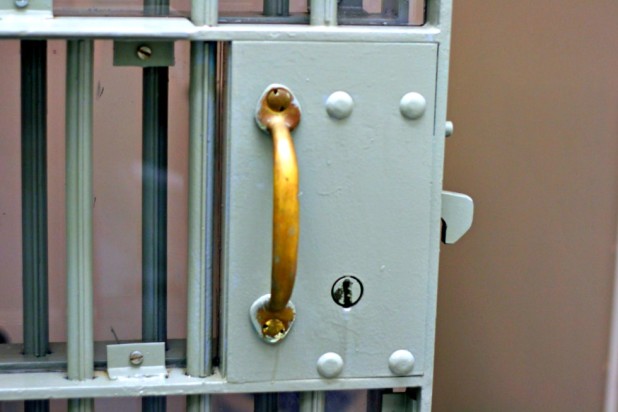
magicatwork/Flickr
Photo for illustrative purposes only.
In a first for Doha News, the editorial team has written an opinion decrying Qatar’s cybercrime legislation. Here, we argue that it should be amended to preserve free speech and protect journalism in the country.
Two years ago, Qatar passed a cybercrime law to protect its people against hackers, child pornography and online fraud, among other things.
To date, prosecutors have used the legislation sparingly when it comes to such crimes, in part because other laws have already outlawed such behavior.
But in a troubling development, the law instead is being exploited by criminals and individuals with personal agendas to silence others.

my_southborough/Flickr
Photo for illustrative purposes only.
These people have been capitalizing on the legislation’s controversialprivacy provisions, which make it illegal to publish news related to the personal or family life of individuals – even if the information is true.
The cybercrime law also contains a vaguely worded clause that criminalizes any content found to violate the country’s “social values” or “general order.”
‘Knife’ to our necks
According to criminal attorney and former justice minister Najeeb Al Nuaimi, many people have been detained under the law for taking photos or videos and sharing them online.
He added that expats tend to be arrested, interrogated and deported, while Qataris are told to sign a pledge promising to avoid such actions in the future.
Speaking to Doha News this week, he said all his fears about the law have come to pass.
“The cybercrime law is in reality like a knife held close to the necks of writers, activists and journalists. It is a tool of intimidation.
I can say in all confidence that the law has curbed freedom of expression particularly in the realm of the written word whether on social media platforms or in journalism. I know of what happened with the Doha News reporter and this is exactly what I mean.”
Doha News journalist detained
Earlier this year, a convicted child molester tried to get Doha News to delete reports of his crimes in Qatar. He also asked authorities to punish our journalists.
In a complaint to the Criminal Investigation Department (CID), Richard Gerrand alleged that an article about his conviction for “breaching the honor” of a seven-year-old girl harmed his reputation because it identified him by name.

Shabina S. Khatri
Former Doha News Assistant Editor Peter Kovessy at CID’s Cybercrime unit in July.
This was enough for CID to bring outgoing Doha News assistant editor Peter Kovessy in for questioning in July.
They locked him up in a detention center overnight and took him in handcuffs to the public prosecutor’s office the next day.
However, the case was dismissed shortly after being presented to officials.
“While I appreciate that the authorities eventually used their discretion and did not press charges, it was highly unfortunate that I was arrested in the first place,” Kovessy said.
He added:
“A law that criminalizes truthful and factual statements is inconsistent with Qatar’s standing as a regional leader in journalistic freedom.”
Personal vendettas
Journalists aren’t the only ones the cybercrime law is being used against.
In November 2015, a Qatar court convicted a woman for insulting her former landlord over a private message on WhatsApp.

Jan Persiel/Flickr
Photo for illustrative purposes only.
According to the court documents, presiding judge Yasir al-Zayyat said the defendant’s messages violated Qatar’s libel laws, explaining:
Her words “targeted (the victim’s honor), were demeaning to his dignity and would cause him to be contemptuously regarded by other people.”
And because the woman used an electronic device to send the messages, she was also convicted under Qatar’s cybercrime law and had additional jail time and fines added to her sentence.
Is this truly how the cybercrime law was meant to be applied?
Freedom of expression
We think not. After Qatar passed its cybercrime legislation, many hoped that authorities would ensure the law would only be used on criminals who actually pose a threat to the country.
Unfortunately, as these incidents demonstrate, that hasn’t been the case.
According to Al Nuaimi:
“I believe these laws exist to primarily protect royals, ministers, governmental officials and those who are powerful. This is very very dangerous.
It means journalists, writers and activists can simply not do their job. No one can be held accountable. The law needs to be modified to strictly protect personal life and the sanctity of the dead – not to terrorize journalists and writers.”
In this digital age, it makes sense to want to create some boundaries about what’s acceptable online.
But what doesn’t make sense is allowing legislation to be used to bully and intimidate people into silence.
Qatar is home to Al Jazeera, the Doha Center for Media Freedom and a branch of Northwestern University that teaches journalism to young Qataris and expats.
The cybercrime law sends the wrong message to them and the rest of the world.

























